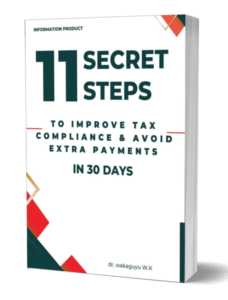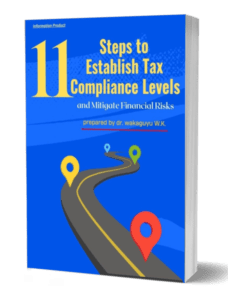Many people have been asking about VAT registration for bloggers. In Kenya, bloggers, like any other service providers and consumers, are expected to comply with various taxes that apply to them, including VAT on local and imported goods and services.
Registration threshold
The VAT Act (2013) stipulates that only those persons whose taxable sales are more than kshs 5 million for twelve months should register for VAT. In determining this amount, the person should not consider the sale of:
- an asset such as a machinery;
- all or part of their business.
The reason for this is that these transactions are one-off transactions that may inflate the taxable turnover for the 12 months.
Therefore, any blogger who has earned more than kshs 5 million per any twelve months should have already registered for VAT. It is important to note that there are proposals to increase this threshold.
Types of VAT registrations
There are several types of VAT registration for a blogger.
1. Normal registration – when a blogger has a taxable turnover of kshs 5 million and applies for registration.
2. Compulsory registration – where the Commissioner registers the blogger because of information that the blogger has a taxable turnover of kshs 5 million.
3. Voluntary registration – where a blogger seeks registration and they do not have a taxable turnover of kshs 5 million.
4. Intending trader registration – where the blogger has not started offering the services but expects to start and have a turnover of more than kshs 5 million per financial.

What is the taxable turnover?
Taxable turnover is the number of sales of blogging services that a blogger transacts in one financial year. This is for local and international sales of blogging services. Please note that blogging services are subject to VAT if the turnover is more than kshs 5 million (current)
To establish the taxable turnover, one simply adds the total billings of blogging services in that financial year. Note for VAT purposes, a blogger does not deduct the expenses to establish the taxable turnover.
Financial year
Most bloggers operate as individual businessmen and businesswomen. For taxation, the financial year of a blogger who trades like an individual is from the 1st of January to 31st of December. For bloggers who do not operate as individuals but as registered companies, they can elect when their financial year starts and ends.
How to register for VAT
To register for VAT, a blogger simply needs to log into the i-Tax platform and follow all the steps for VAT registration. For a blogger to do this, they need to have a personal identification number (PIN) and the other documents that are required.
The tax commissioner can accept the application for VAT registration, in which case the person is registered. The tax commissioner can also decline the application for the registration. The blogger will be informed of the Commissioner’s decisions in both cases.
Once the person is registered, they will not receive a separate VAT certificate and number, but the VAT obligation will be added in the PIN certificate. Previously, a separate VAT certificate and number were being issued. Note that it is an offence under VAT law to register for VAT when one does not qualify to do so.
The VAT-registered blogger is expected to download and print out the PIN certificate and display it in a visible place in their business. In case they have more than one business place, the blogger is expected to make copies and display in each place they conduct business from. Failure to display the certificate is an offence.
In case any of the registration details are changed, the blogger is expected to inform the Commissioner, so that the changed can also be effected in i-tax.

VAT period
The VAT is reported monthly. The month is one calendar month. That is from the beginning of the calendar month to the end of the calendar month.
For example, for October 2017, a VAT registered blogger would be required to report their transactions in both sales and purchases from 1st October to 31st October.
Note that the VAT must be reported irrespective of whether the blogger had any sales or purchases in that month.
Blogging services
Bloggers provide many services among their blogging services. The blogging services can be categorised using various factors. For example, all the blogging services that a blogger provides can be categorised according to where they are sold into two categories. The following are the two categories:
Blogging services that are sold within Kenya
This is where the blogger can write articles, manage websites, develop websites and write up on business sales, etc. The payments for the services are normally in Kenya shillings. The VAT is at the same tax rate as for any other local supplies at the VAT rate of 16%.
The payments for the local supplies any be in kind, cash, mobile money or by cheques. Alternatively, the payment can be transferred directly to the bank account(s) of the blogger.
Exported blogging services
This is where a blogger provides services to persons outside Kenya. The services may be article writing, website management, website development, etc. The payment is normally in foreign currency, e.g. US dollars.
The payments for the exported services are credited into the bloggers PayPal account, debit cards, credits cards, or bank accounts. The VAT tax rate is the usual exports VAT rate of 0 %. This is referred to as output VAT.
Conclusion
A VAT-registered blogger in Kenya will charge VAT in Kenya at the domestic VAT rate of 16 % or the export rate of 0%.
Once a blogger is registered for VAT, they are supposed to immediately start complying with the VAT laws in Kenya. Failure to comply with the VAT laws attracts fines, late payment penalties and interest. In the next post, we will address how the blogger operates the VAT accounts.
Thank you for reading the post. Let us know your thoughts in the comments.
Dr Wakaguyu
taxkenya@gmail.com







